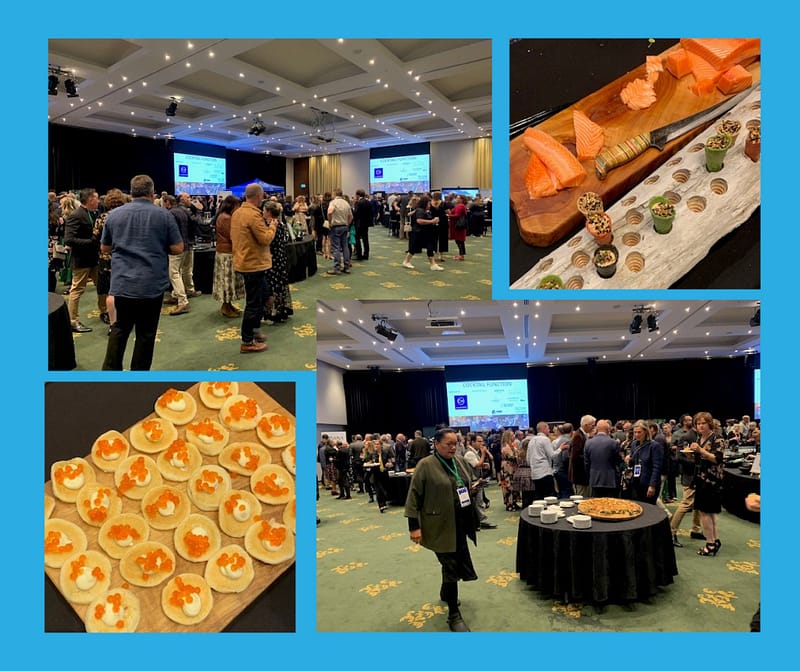Aquaculture – more so than ocean fishing – has huge growth potential, and will play a key part in providing high quality protein to an ever-expanding and hungry global population. At the Aquaculture New Zealand Conference 2023 this was underlined in Emily De Sousa‘s presentation, ‘The Future is Blue’ when she quoted a colleague who says, “Hope is in the water”.
Once industry and government address the regulatory framework to permit growth, Aotearoa New Zealand’s aquaculture industry will have the ability to grow much faster towards the $5 Billion target set in the Labour government’s aquaculture strategy. This growth will largely be underpinned by the growth in deep-water farmed salmon (rather than the current inshore farming model), and relies on talent being available at every level, and in both the farming and processing ends of the value chain, as well as industries that support aquaculture.
Talent availability is the biggest challenge. Research undertaken by the Aquaculture New Zealand’s workforce planning project, and other related research, strongly suggests that perception and awareness of the aquaculture industry across the wider population, but in particular amongst the Gen Z and Millennials, is not strong. Although this doesn’t mean the latter don’t want to work in the aquaculture industry. Young Fishers, a fishing and aquaculture industry group set up by young people (similar to Young Farmers and Food and Fibre Youth Council) is bringing together young people from across the blue water economy and helping to correct perceptions among their peers.
One of the barriers for young people appears to be that aquaculture is primarily based in provincial, small town New Zealand. Young people don’t necessarily want to stay in their home towns or simply aren’t enticed to leave cities and move to the smaller communities offering aquaculture opportunities.
The importance of community was highlighted many times during the conference. A fantastic example of aquaculture contributing to the recovery and development of community was what Whakatōhea Open Ocean Mussels set out to do for, and with, the community of Opotiki in the eastern Bay of Plenty. From the aspirations of the Iwi leaders wanting to restore the mana of the people through investment in a start-up aquaculture business, Whakatōhea Mussels has become (in a few short years), Opotiki’s single largest employer and continues to contribute to a stronger local community.
Using Whakatōhea as an example, the key question is how does industry partner with local and central government, agencies and the community to replicate what is happening in Opotiki? And as a result, entice young people to stay in their home towns, and / or attract people of all ages and their whanau out of the cities for a potentially, more fulfilling opportunity and lifestyle?
Consideration also needs to be given to whether the qualification and training models are meeting the needs of all parties? Do they foster career aspirations, and ensure retention, and provide personal development and growth? Given the seasonal element to aquaculture, how does the industry ensure talent is looked after and retained year on year?
Answer these questions, then the future is most definitely blue.
@paul hollings, GM @FFCoVE
Posted as LinkedIn article 19 October 2023
